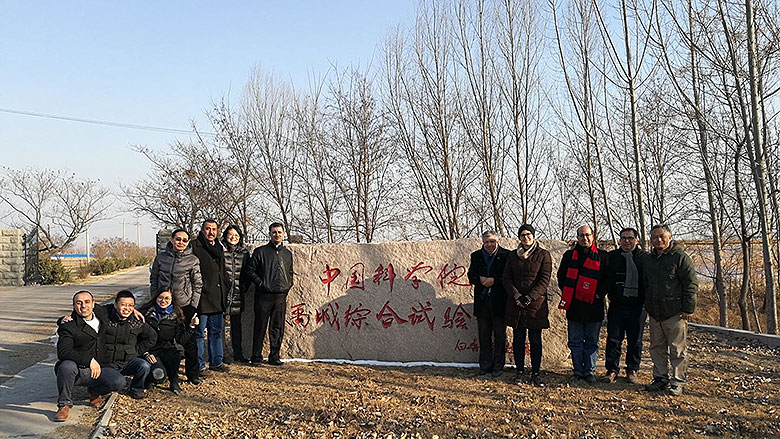Over a week in early February 2018, a delegation of eight high-level officials and experts from Egypt, Jordan, Tunisia, Lebanon and the Arab Water Council (AWC) visited China to learn how the country manages scarce water resources and adapts to climate change by using integrated water-saving technologies in agriculture.
As one of the most food insecure regions in the world, countries in the Middle East and North Africa suffer chronic water shortages and rely on irrigation and food imports to overcome difficult agroecological conditions. Water scarcity is a main constraint to constant but ever-expanding food production, as irrigation accounts for 85 percent of the region’s total water consumption. Groundwater depletion and climate change exacerbate the problem, widening the gap between fresh water availability and growing demands, and acting as a threat multiplier in an already fragile region.
The tour was organized under the Middle East and North Africa Regional Coordination on Improved Agriculture Water Management Project, and financed by the China-World Bank Group Partnership Facility (CWPF).
In Beijing, the delegation had a series of high-level meetings, presentations and technical discussions for knowledge sharing with officials and experts from various Chinese ministries and institutes responsible for agriculture, water management, poverty alleviation and international cooperation, as well as from the World Bank.
With China’s northwestern region and the Middle East and North Africa region sharing similar conditions for agricultural production such as soil, temperatures and precipitation, these countries are poised to benefit greatly from sharing knowledge, noted Vice Minister Qu Dongyu in the Chinese Ministry of Agriculture.
In the Chinese Ministry of Water Resources, Vice Minister Zhou Xuewen said China is ready to share its water management experiences with other countries through mutual visits, policy dialogues, technical exchange and cooperation among river basin management departments and research, designing and planning institutes, and work with the World Bank to find innovative approaches to improving water management in developing countries.


